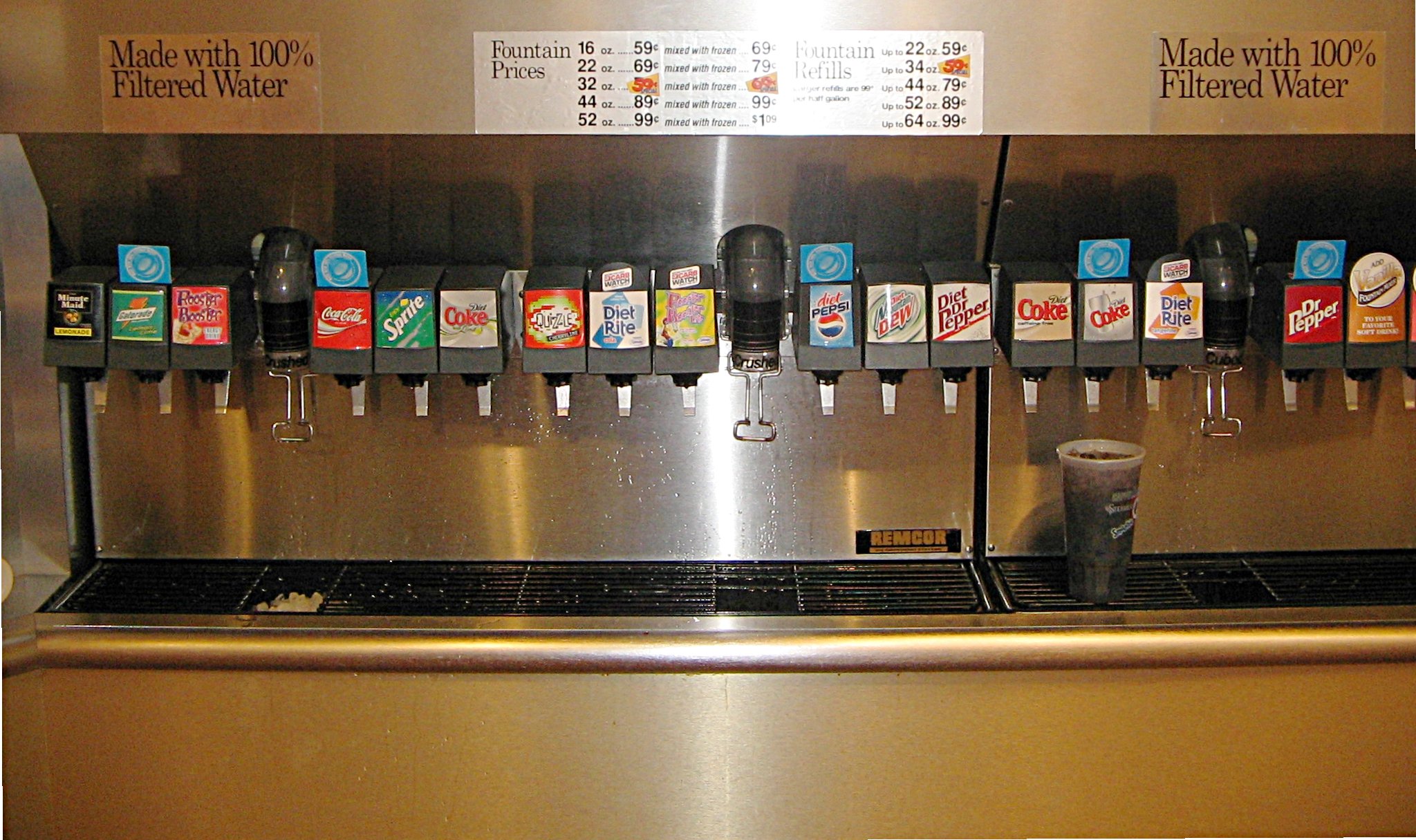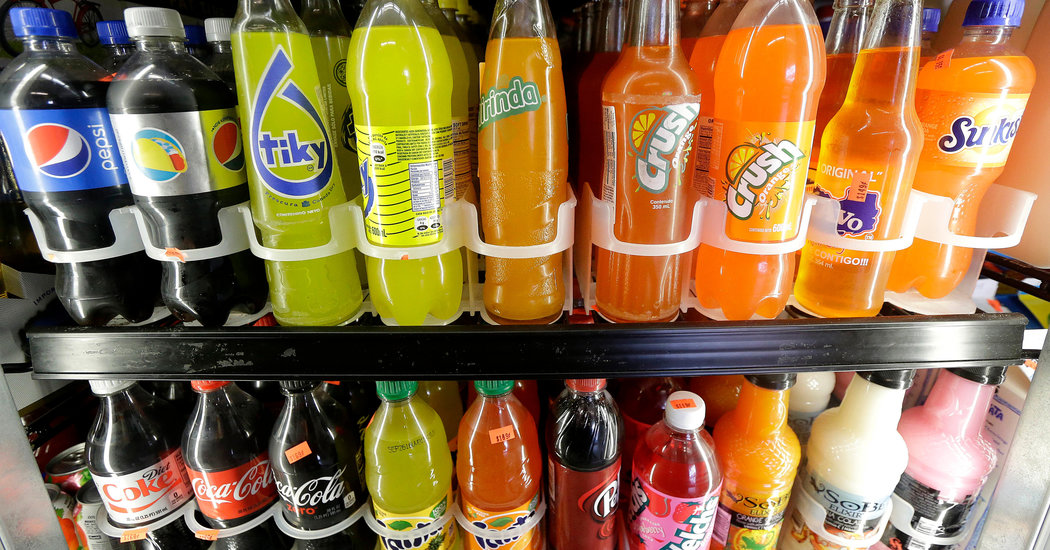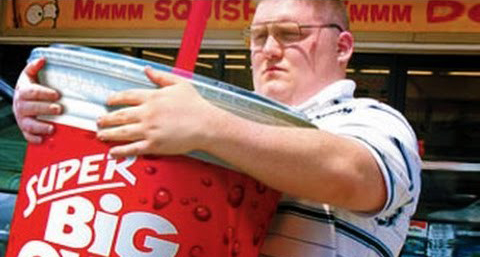Sleeping With “Big Soda” and Conflict of Interest
I have to tell you I’m still pretty ticked-off finding out about this huge conflict of interest: Big Soda acting like Big Tobacco and the health-care industry falling for it! I’m not sure where I’ve been to not hear about this until now; but, thankfully, the American Academy of Pediatrics and a few others have already come clean and done the right thing!
Big soda in bed with non-profit watchdog organizations
The American Journal of Preventive Medicine has done the world a huge favor in making more public the devastating conflict of interest between the BIG soda companies of Coca Cola and Pepsi and most of the so-called organizations who’ve set themselves up as “watch dogs” or authorities in the anti-obesity field.
The research was done by the Boston University School of Public Health in Massachusetts and the report I’m referencing was published in October of this year (2016). It revealed that between 2011 and 2015 Coca-Cola and PepsiCo sponsored a total of 96 national health organizations with their “philanthropy” dollars.
Back-door Improper Influence
On the face of it, the portion they took care to make sure we were focused on, a noble effort; but, on the “back-side” they were concomitantly spending equal amounts on “lobbying expenditures” as well.
Sixty-three public-health organizations, 19 medical organizations, seven health foundations, and five government organizations accepted sponsorship from Coca-Cola or Pepsi during the five years – all revealed in the paper. These included the Centers for Disease Control and Prevention (CDC), the American Diabetes Association (ADA), the American Heart Association (AHA), and the Obesity Society, as well as a number of cancer organizations.
To me the most egregious and outrageous part of the scandal is that, at the same time they were smiling and grinning with checks in their hands up front, Coca-Cola lobbied against all 29 public-health bills intended to reduce soda consumption or improve nutrition. PepsiCo opposed 26 of the 19 bills.
According to the authors: “Rather than supporting public health, organizations may become unwitting partners that contribute to corporate marketing strategy… It is probable that corporate philanthropy is increasing consumption of soda throughout the country and causing substantial harm to Americans.”
The general populace were sickened as we watched the unfolding of tobacco company culpability in the congressional probe of the tobacco industry. Revelations that we medical types obviously suspected but never really knew; although since have been clear and well documented. OUR SOFT DRINK INDUSTRY TOO? SHAME!
Living in this society of avarice we are less shocked that Coke and Pepsi did it BUT the American Heart Association AND American Diabetes Association being involved too is just disgusting! Everyone with a brain realizes just how much that kind of conflict of interest influences the outcomes of research.
Attention gets deflected away from soft-drink consumption as a serious public-health problem, thereby muting or even neutralizing opposition to the role soda companies play in the obesity crisis.
Seeing The Light?

At the end of 2015 the American Academy of Pediatrics made the decision to end its relationship with Coca-Cola and said they hoped other organizations would do the same.
Some others did, including the Academy of Nutrition and Dietetics, the American Academy of Family Physicians and that American College of Cardiology but a substantial number of our tax-exempt, so-called watchdog organizations are still cohabitating.
As Big A Threat As Tobacco Industry
The report clearly makes the statement, after extensive research, “Financial alliances between medical institutions and soda companies constitute a threat to public health not unlike that of tobacco and alcohol sponsorship.”
Soda companies are basically taking a page out of the Big Tobacco playbook. Most of us in the health care industry feel that the responsibility is on the organization itself to refuse to be used as part of a soda marketing strategy.
Watching what damage the tobacco industry willfully inflicted on the health and well being of human-kind it is absolutely clear that no amount of the rationalizations for accepting the blood-money is either proper, honest or effective. There IS NO working WITH such companies – it doesn’t work!
Every public-health collaboration with these health-damaging industries (tobacco) turned into a disaster which was terribly counterproductive impeded progress in enacting effective policies to address these problems. Big Soda is no different. They will protect their own interests on the back of society in general. They have as deep (or deeper) pockets as Big Tobacco.
Damage Already Done
Between 2011 and 2014, Coca-Cola Company spent more than $6 million annually fighting legislation to curb soda consumption while PepsiCo spent more than $3 million per year. The American Beverage Association, which is funded by Coca-Cola and Pepsi, spent more than $1 million annually.
Yet this was small change compared with what was spent to oppose the federal soda tax in 2009. Coca-Cola spent $9.4 million, PepsiCo spent $9.5 million, and the American Beverage Association upped its budget almost 20-fold to $18.9 million.
None of the health organizations “need” to take the tainted money. According to the report “There are many other potential sponsors that are not manufacturing products linked to obesity and that are not lobbying against public-health measures to reduce obesity.” The fact is that it was just easy money.
And, if you buy the rhetoric that “it didn’t influence us in our research or decisions”, which I don’t, just what DID the “donations” buy Coke and Pepsi? “Proud partners with…” statements on packaging suggesting a healthy and endorsed product, shared banners on corporate website effectively endorsing the products, private discussions and access to top level management where “reconnaissance” can be done.
Back-pedaling and Weaseling

According to the authors the tide seems to be turning on such back-handed relationships; however, to me it seems that the CEOs and “spokespersons” are tying themselves into pretzels with all their blustering and posturing trying to do “damage control.”
It’s hard for greedy people to admit their avarice. Even the AAP used “waffling” words in their press releases and many requests for journalist interviews were turned down. The AAFP left the door open for “future projects,” the ACC used such soft language it was hard to tell what they were saying.
The CDC stated that because they realized the controversy they re-examined their guidelines for corporate relationships and “it is doubtful that (the soda company) would have met the more stringent review.” The ADA postured about what lobbying efforts it has endorsed and basically downplayed it’s bed-sharing with Big Soda.
And, believe it or not, the Juvenile Diabetes Research Foundation (an organization which has a long history of competing vigorously for research funding against the ADA) tries to spray the stench away by claiming, basically: “we research the cause/cure for juvenile diabetes… which is not sugar based… and has no cure.” They have no need to act responsibly for the health of children with type II diabetes (the current national epidemic) because it doesn’t involve them!!?
Disillusioned and disappointed with entities that I’ve long had respect for, I see one ray of hope and integrity. The leadership of the University of Colorado, not merely content with opting out of another contract, they decided to actually RETURN A $1 MILLION DOLLAR SOAD SPONSORSHIP.
The authors of the study observe: “Today, you can’t find any health groups that are willing to take Big Tobacco money. The same thing will eventually be true, we believe, with the soda companies.” Let’s hope they’re right.

